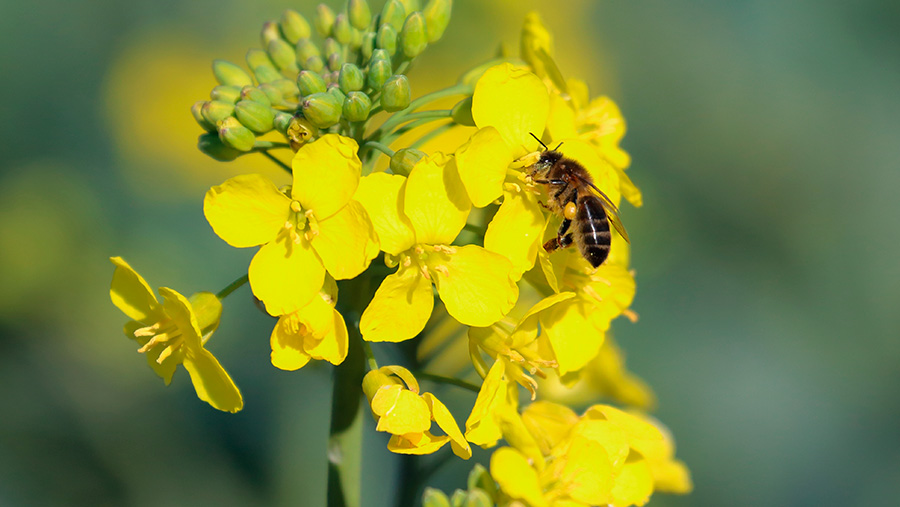Study suggests neonics impair bees’ buzz pollination
 User submitted pic, DO NOT REUSE
User submitted pic, DO NOT REUSE A bee’s ability to produce the necessary buzz it needs to shake pollen from crops such as potatoes may be harmed by neonicotinoids, according to new research.
Preliminary findings from the University of Stirling suggest that the controversial pesticide can hinder bees when it comes to a process known as buzz pollination.
In standard forms of pollination, bees collect pollen by simply brushing it off plants’ anthers.
See also: NFU reviews neonics emergency application
But buzz-pollinated plants – crops such as tomatoes, potatoes and aubergines – guard their pollen inside the anther and release it through small pores in the tip.
Penelope Whitehorn, who led the study, said: “Bees produce a vibration – or buzz – to shake pollen out of the anther like a pepper pot.
“The bee lands on a flower, curls her body around the anther and grips the base with her mandibles. She then rapidly contracts the flight muscles to produce the vibration, without beating her wings.”
To investigate the effects of neonicotinoids, Dr Whitehorn split a bumblebee colony into three groups of workers and fed them different field-realistic doses of the neonicotinoid thiamethoxam.
She then measured how much pollen these bees collected from buffalo-bur flowers (Solanum rostratum) in the lab, and recorded their buzzes to analyse the acoustic properties.
Buzz pollination
The results revealed that learning is key to buzz pollination, and that the more bumblebees practiced, the more pollen they collected over time.
But the study also showed that bumblebees fed field-relevant doses of thiamethoxam did not collect more pollen over time, suggesting the insecticide was affecting their ability to learn.
“The study adds to the now large body of evidence from lab and field-based studies that neonicotinoids reduce learning and memory in bees, impair their communication, foraging efficiency and immune systems and, crucially, reduce their reproductive success as well as the pollination services that they can provide,” she said.
Dr Whitehorn presented her findings at the British Ecological Society annual meeting in Liverpool on 13 December 2016.
In 2013, the EU issued a moratorium limiting use of three neonicotinoids on crops attractive to bees.
This moratorium is still in place and is currently under review by the European Food Standard Agency, which should conclude in early 2017.
In 2015, Defra granted the UK farming industry permission for the “emergency use” of neonicotinoid treatments on 5% of the oilseed rape crop.
However, a similar request from the NFU for the 2016 crop was turned down.

